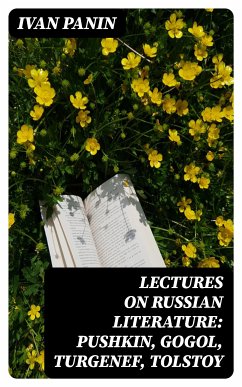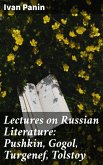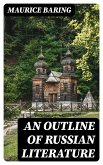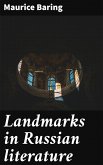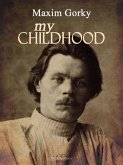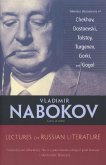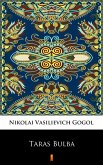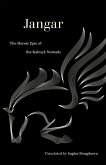In "Lectures on Russian Literature: Pushkin, Gogol, Turgenef, Tolstoy," Ivan Panin delves into the rich tapestry of Russian literary heritage, providing profound insights into the monumental works and lives of four titanic figures: Alexander Pushkin, Nikolai Gogol, Ivan Turgenev, and Leo Tolstoy. Panin employs an analytical yet accessible literary style, combining scholarly rigor with a passion for the subject, making the text suitable for both novices and seasoned scholars. His lectures examine not only the thematic elements and innovations of each author but also the socio-political context that shaped their narratives, offering readers a holistic understanding of Russian literature's evolution. Ivan Panin was a renowned literary scholar and a leading figure in the study of Russian literature, known for his articulate and critical approach. His own background as a Russian émigré infused his work with unique perspectives, allowing him to bridge cultural divides. Panin's engagement with these authors reflects his admiration for their profound influence on the literary world and his commitment to preserving their legacies amidst a Western audience. This book is a treasure for anyone seeking a deeper appreciation of Russian literature. Panin's lectures not only illuminate the authors' masterpieces but also celebrate the enduring spirit of Russian culture. Readers, whether scholars or casual enthusiasts, will find inspiration and understanding in Panin's eloquent discourse, making it a must-read for those interested in the literary canon.
Dieser Download kann aus rechtlichen Gründen nur mit Rechnungsadresse in A, B, BG, CY, CZ, D, DK, EW, FIN, F, GR, H, IRL, I, LT, L, LR, M, NL, PL, P, R, S, SLO, SK ausgeliefert werden.

